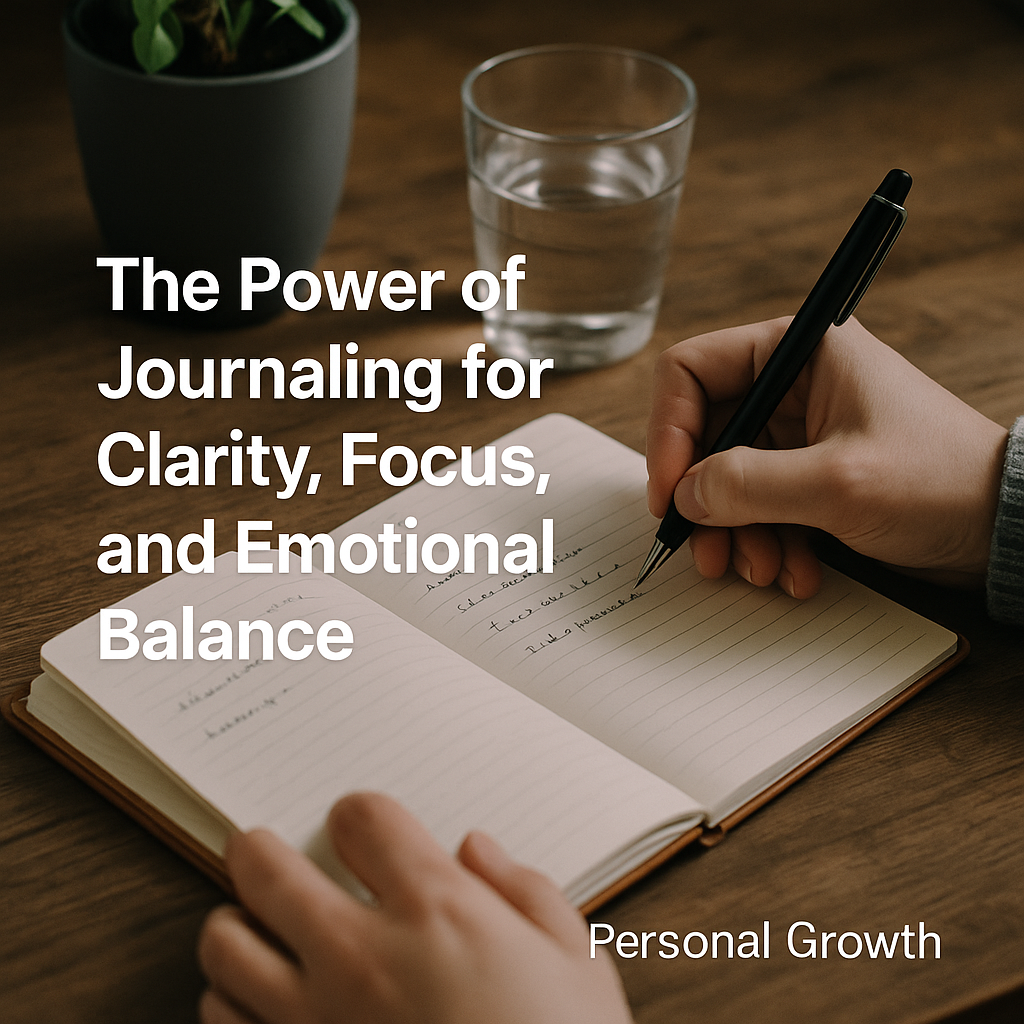Journaling is more than just writing down your thoughts—it’s a practical tool for organizing your mind, managing emotions, and staying focused on your goals.
In this article, you’ll learn how journaling can transform your mental clarity and personal growth, and how to make it a simple, sustainable part of your routine.
Why Journaling Works
Writing forces you to slow down and process your thoughts with intention. It turns mental chaos into clarity.
Benefits of journaling include:
- Reducing stress and anxiety
- Improving focus and decision-making
- Boosting creativity and problem-solving
- Tracking goals and habits
- Processing difficult emotions
- Strengthening self-awareness
And no—you don’t have to be a “writer” to journal effectively.
1. Start With Simple Prompts
If you’re new to journaling, start with 5–10 minutes a day. Use prompts to guide your thoughts.
Examples:
- What am I grateful for today?
- What’s on my mind right now?
- What’s one thing I learned or noticed today?
- What’s something I’m avoiding—and why?
- What would my ideal day look like?
Prompts give your brain direction when you’re not sure what to write.
2. Use Journaling to Organize Your Thoughts
When your mind feels foggy, journaling can help you untangle confusion.
Try a brain dump:
- Set a timer for 5 minutes
- Write everything on your mind—without censoring or editing
- No structure needed—just get it out
This clears mental clutter and often leads to insights you didn’t know you had.
3. Reflect, Don’t Just Record
Instead of only documenting events, ask:
- How did I feel about this?
- What patterns do I notice?
- What do I want to do differently tomorrow?
Reflection turns journaling into a tool for growth, not just memory.
4. Track Habits and Progress
Use your journal as a personal dashboard:
- Write your top 3 goals each week
- Track habits like workouts, meditation, reading, or screen time
- Note any small wins, changes in mood, or breakthroughs
When progress feels slow, these records show how far you’ve come.
5. Process Emotions Without Judgment
Journaling is a safe space. Use it to:
- Vent frustrations
- Explore fears
- Celebrate joys
- Express hope or doubt
The key is honesty—not perfection. Let your writing reflect your reality.
6. Keep It Sustainable and Flexible
Your journal doesn’t need to follow rules. You can:
- Write long entries one day and bullet points the next
- Use pen and paper, a notebook app, or voice notes
- Journal in the morning for focus—or at night for reflection
Consistency matters more than format.
7. Revisit Past Entries for Insight
Every few weeks, flip back and read old entries. Look for:
- Patterns in behavior or emotion
- Recurring thoughts or limiting beliefs
- Signs of progress you forgot about
This strengthens self-awareness and shows how much you’ve grown.
Final Thought: Your Journal Is a Mirror for Your Mind
In a world of noise, journaling gives you a quiet space to listen to yourself.
It’s not about being eloquent—it’s about being honest. Whether you’re solving a problem, processing emotion, or planning your day, a few minutes of writing can bring powerful clarity.
So open the page. Begin where you are. Your mind will thank you.

